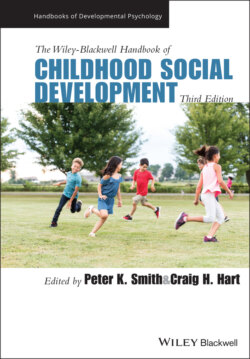Читать книгу The Wiley-Blackwell Handbook of Childhood Social Development - Группа авторов - Страница 99
Final Thoughts
ОглавлениеSince the 1970s, family time and child socialization practices have intensified. In countries of the global north, parents increasingly spend more time with their children. At the same time, child socialization has become less “social” and more interpersonal, predominantly located within the family, reflecting wider neoliberal trends. Amongst them, the psychosocial orientation of family policy, the increasing politicization of parenting and care, inequality, and political polarization and social crises shape children’s experiences of growing up. It is not easy to untangle their effects on child socialization especially as they promote a view of social and emotional development and learning as means to an end, a continuous process of self‐improvement. Clearly, the neoliberal restructuring of society has reduced the scope of family as a civic institution whose goal is to socialize children as citizens rather than consumers or future investment. Child socialization is shaped by parents’ attempts, from an early age, to maximize their children’s life chances. It is class based and has taken different forms from concerted cultivation to more nuanced types of support offered by different fractions of middle‐class parents with access to various forms of capital.
Children flourish in a civic society with a strong communitarian ethos and social trust bonds, relying on networks that bring mutual benefits where state responsibility towards social care and service provision is at its heart. Child socialization in the global north is surrounded by discourses of rights but we need a radical shift in the balance between rights and responsibilities/obligations, especially as unprecedented crises change the timbre of our lives. As we currently experience with the appearance of the Covid‐19 pandemic, when social crises occur dramatically a window into family functioning and child socialization opens wide. We see parenting and socialization to be further intensified, children’s physical and social spaces reduced, and virtual encounters increased. We see low‐income parents struggling to offer concerted cultivation to their children when even the accomplishment of natural growth becomes a mounting struggle. Inequality and its manifestations become starker and micro‐management of private family life more excessive. There is a glimmer of hope though in that people are rejecting fragmentation and division and are actively seeking to redefine common good, and redesign social arrangements and institutions to better align with the support and care families need to raise their children.
